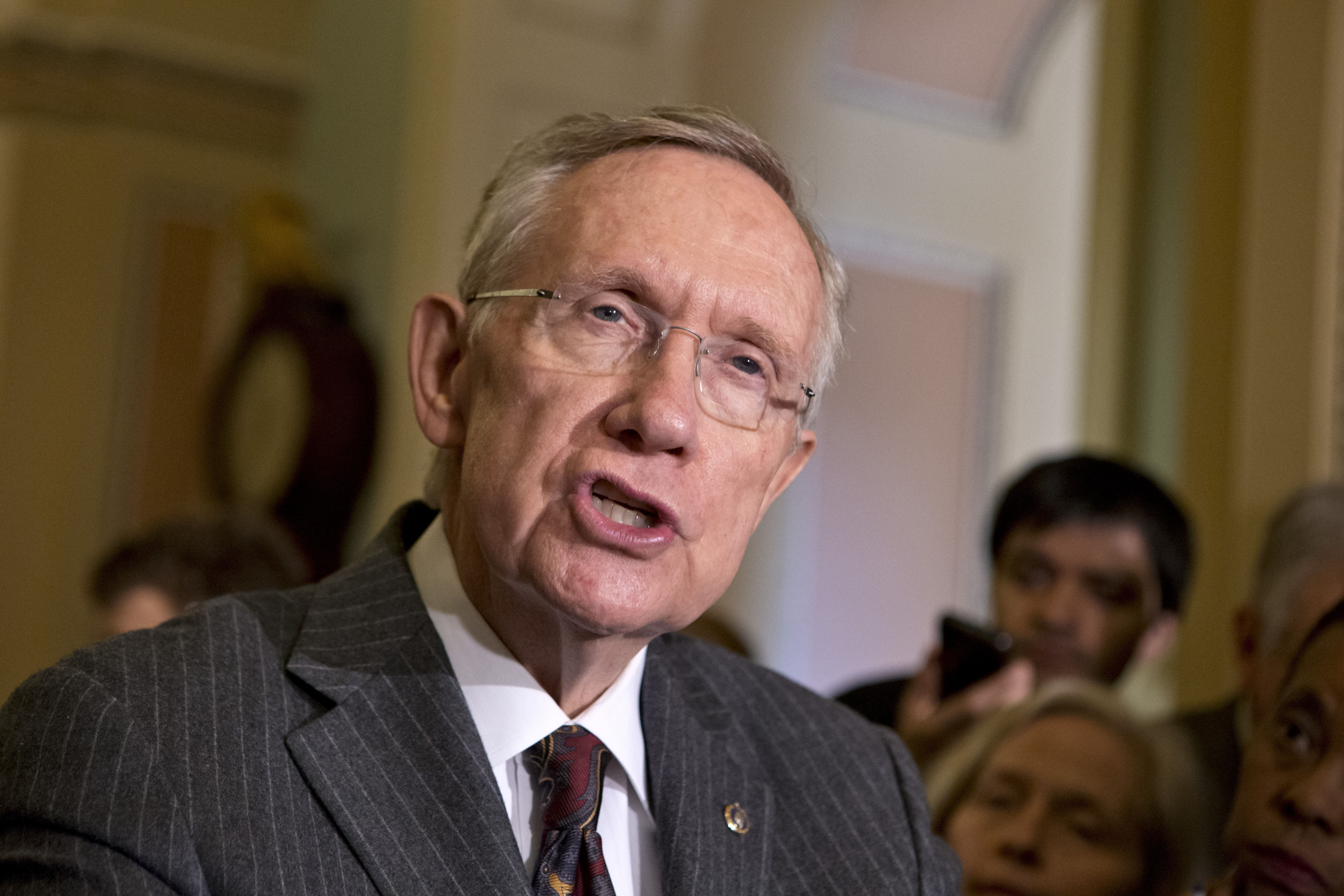If U.S. Senate Majority Leader Harry Reid (D-Nev.) really wants to shake up the Senate, how about repealing the Seventeenth Amendment?
Videos by Rare
Complaining that the Senate was not working, Reid proposed eliminating the filibuster for most presidential nominations—excluding U.S. Supreme Court nominees and legislation. Nearly all Democrats, and no one else, voted for the change.
Both Reid and President Obama defended the move by claiming the current deadlock in Washington was not what the Founding Fathers envisioned. He’s right about that, but for much different reasons.
But if Reid and Obama have come around to caring about what the Founding Fathers thought—that’s a headline in itself—why not go back to the way they wanted the Senate elected in the first place, which they put in Article 1, Section 3 of the U.S. Constitution: “The Senate of the United States shall be composed of two Senators from each State, chosen by the Legislature thereof, for six Years; and each Senator shall have one Vote.”
That’s the way U.S. senators were elected until the Seventeenth Amendment changed it to a popular vote.
The amendment passed Congress in 1912 and was approved by three-fourths of the states in 1913—the same year, incidentally, the Sixteenth Amendment, which created the federal income tax, passed. So you know something had gotten hold of the country’s senses.
The push for popular senatorial elections had some support all the way back to the country’s founding. But it didn’t gain real momentum until the U.S. entered what’s often referred to as the Progressive Era.
The Founding Fathers were not big fans of pure democracy; they wanted to create a republican form of government instead. And they wanted at least one chamber where the members’ reelection didn’t depend on how much money they doled out to the public.
There were also concerns raised in the 1800s that senatorial elections by the state house led to corruption. Maybe, but it’s hard to see how it could be any worse than the Senate was under, say, Senate Majority Leader Lyndon Johnson.
Just peruse Politico’s recent release of “Sex in the Senate: Bobby Baker’s Salacious Secret History of Capitol Hill.” It will curl your toes.
Baker was Johnson’ right hand man, his “go-for.” As Baker points out, money flowed to needed votes; and sex flowed whether senators’ votes were needed or not. The account sort of gives a whole new meaning to “tit for tat.” And the press stayed silent about it all.
If there is less corruption today, it’s because there is so much public and media scrutiny. Some elected officials may still get away with some things, but it isn’t easy.
Of course, there’s no guarantee the Senate would work better if the Seventeenth Amendment were repealed, just as there is no guarantee that it will work better with a partial filibuster repeal. But at least repealing the amendment would get back to the Founders’ original intent: that states, as states, have a robust voice and role in federal legislation.
As a kind of half-way measure to full Seventeenth Amendment repeal, Nick Dranias of the Arizona-based Goldwater Institute has proposed an alternative: Allow state legislatures to propose their own candidate for a U.S. Senate seat.
Political parties could put forth their candidates, but if a state legislature was dissatisfied with those options, it could offer its own candidate to run in the general election. This change doesn’t need federal approval; states would just have to ensure, by legislation or otherwise, that they could do it within their state.
Dranias doesn’t think it likely many states would actually put up a candidate, but the threat, he thinks, would make candidates and incumbents more attentive to their state legislatures. Call it a “check and balance” for federalism.
Reid’s move to end the filibuster was politically driven and completely self-serving. But it’s not that he went too far; he didn’t go far enough. Revisiting the Seventeenth Amendment would.



